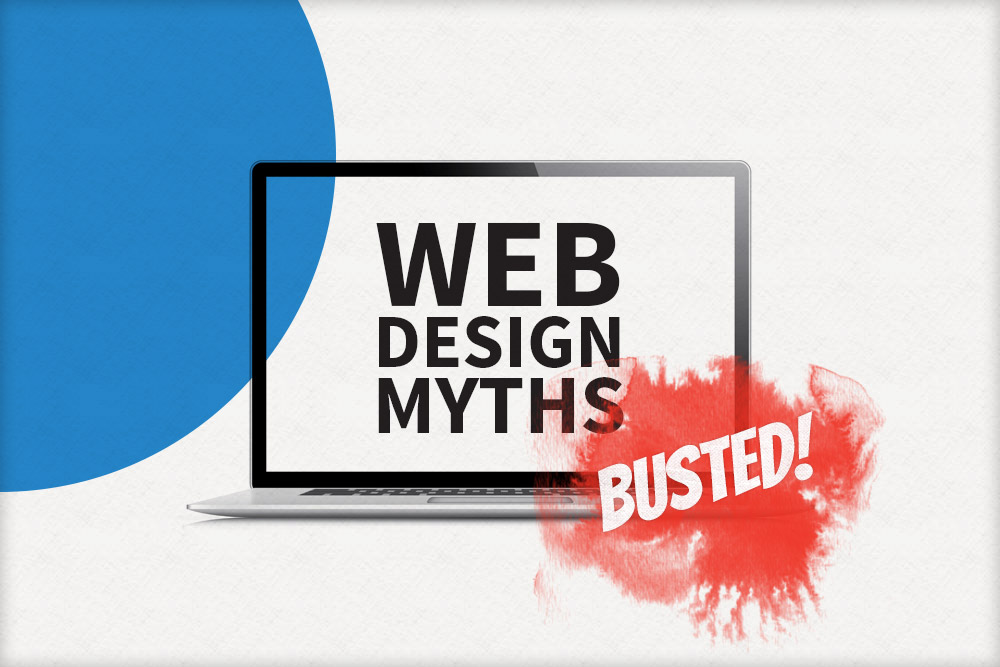There are certain web design myths that everyone should be aware of if they have an online business. Myths exist everywhere from commons ones like Bigfoot and the Loch Ness Monster to lesser known myths that permeate various industries. Web development companies are often aware of most of these myths and while reputable companies make sure to steer you away from them, others might use them to instead take advantage of a client or at the very least leave them misinformed.
How can these myths hurt your business? After all Bigfoot sightings seem harmless enough. The answer lies in the potential loss of profits. Each myth a business might believe is true can cost you in the form of conversions, and that is never a good thing.
So let’s go over some of the web design myths everyone should be aware of that are still floating around the internet even in this age of information we live in.
Web Design Myths
- It just needs to look good – While having a beautiful site is an important factor, a website needs to do more than just look pretty. A website needs to first and foremost solve a need for the users. For example, while Amazon does have a nice looking site it is the functionality, user interface and useful information on the products it sells that makes it great. If they opted to use a well-scripted font that while aesthetically pleasing was hard to read then that sacrifice in functionality would cost conversions.
- Social media buttons are unnecessary – That is true only if you don’t plan on doing any marketing and ignore using social media for your business. Social media is an important way to not only connect with customers but also increase your traffic. Having a simple one-click option for users to access social media is a no-brainer.
- If I like it everyone will – This is a painful truth that many people learn the hard way; just because you like something that doesn’t mean your target customers will. Far too many business owners let ego get in the way when it comes to selecting things from a business name to designing a website. Remember, a site should be designed around what your target customers need and then fulfilling that need in the best way possible for them. That means understanding your target users and designing around their likes and dislikes even if those are opposite of what you prefer.
- You don’t need a mobile friendly site – Smart phones and tablets are everywhere both in the U.S. and globally. That means a decent percentage of your target customers will try and access your site from a mobile device. Do you really want to lose business because you aren’t providing them a good mobile experience while your competitors are? On top of that Google considers the mobile friendliness of a site as part of the overall indexing.
- A cheap site is good enough – Good enough for what? Yes, free websites and cheap box-build sites do serve a purpose especially for hobby businesses and new small businesses, but they also have plenty of downside. The most important thing lacking is support. Yes most of these hosting sites provide some level of customer service but it is minimal at best. Also you often get a free design using a template-based design program but all that tells clients is that you are just another template-based business.
- Website updates are a waste of money – Change is an inevitable part of life. Not only will your business change but also technology changes. Ideally you should update your site every two or three years to ensure that you are taking advantage of technology changes as well as expanding your site as your business expands and changes. People tend to view a business as out of touch when their website is dated.
The bottom line is that myths exist in our society. Some people see them easily for what they are while others buy in to them and help them continue in the world. In the world of web design these myths can actually be harmful if you believe them because that means you are not only misinformed but also missing out on potential conversions which is never good.
This article was originally published in 23 May 2017. It was most recently updated in November 28, 2022 by























